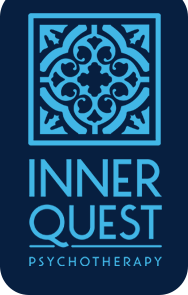Childhood Trauma / Family Conflict
One of my areas of specialization is working with clients who experienced childhood trauma, or who grew up in critical, dysfunctional, rejecting, controlling, or abusive families. These experiences may have left you feeling not good enough, inadequate, unwanted, rejected, ashamed, alone, unlovable, or even traumatized.
When you have such life experiences, many of your core emotional needs are not met – needs for love, affection, acceptance, belonging, safety, autonomy, healthy attachments, and the freedom to express your needs and emotions.
These unmet needs lead to the development of negative beliefs about yourself and others – for instance, that you are unlovable or unworthy, that you are defective, that others will abuse and mistreat you, that you don’t belong, that you’re a failure or not good enough, etc. While these beliefs may be unconscious and you may be unaware of them on a day to day basis, they can manifest themselves as depression, anxiety, low self-esteem, relational problems, eating disorders, or other difficulties in your current life.
I use therapeutic approaches that are specifically designed to help you identify these beliefs, understand their origin and how they impact your current life, and process your past experiences on a deep level that helps you heal from within, build a healthier view of yourself, and form better relationships.
Childhood trauma or family conflict impacts each individual in a unique way. In your current life, you may struggle with:
- Self-doubt and low self-esteem – chronic feelings of worthlessness, not feeling good enough, or questioning your capabilities as a result of past criticism, rejection, or emotional neglect
- Anxiety – living in an unpredictable or dysfunctional childhood environment can cause constant worry and anxiety that can continue into adulthood
- Depression – dealing with ongoing stress, negativity, or instability in the family can lead to feelings of sadness or hopelessness that can persist later in life
- Trust issues – difficulty trusting others due to betrayal or other past experiences in the family
- Fear of rejection or abandonment – fear of being rejected, abandoned, or left alone, stemming from inconsistent relationships in the family
- Relationship difficulties – difficulty forming or maintaining healthy relationships due to patterns learned in childhood or due to lack of positive role models to help you understand what healthy relationships look like
- Intimacy issues – struggling to be emotionally vulnerable or connect intimately with others due to fear of rejection or abandonment
- Self-sabotage – engaging in behaviors that undermine your personal or professional success due to deep-seated feelings of unworthiness
- Self-sacrifice – self-sacrificing your own needs, emotions, and preferences to please others or to avoid conflict
- Chronic stress – carrying the weight of unresolved childhood traumas, leading to chronic stress
- Anger – pent-up anger and resentment from unresolved conflicts in the family
- Guilt – feeling responsible for family problems or for not being able to fix them
- Shame – feeling like what you’ve been through is shameful, that it must be kept hidden, or like you’re a bad person
- Trauma – feeling traumatized from abusive experiences
- Repeating patterns – unconsciously repeating dysfunctional behaviors or dynamics learned in childhood in your current relationships and interactions
- Social isolation – feeling disconnected or alienated from others, feeling different, feeling that you don’t belong, or withdrawing from social interactions
- Difficulty expressing emotions – suppressing emotions or having trouble articulating feelings, stemming from lack of emotional validation in childhood
- Emotional numbness – disconnecting from your emotions as a way to cope with overwhelming feelings
- Identity issues – struggling to develop a sense of self or having difficulty separating yourself from the dysfunctional family dynamics
- Perfectionism – striving for perfection as a coping mechanism to gain control in chaotic environments or as a way to compensate for feeling not good enough
- Difficulty with authority figures – struggling with authority figures due to negative experiences with authority in childhood
- Boundary issues – struggling to set and maintain appropriate boundaries with others, or letting others take advantage of you
- Codependency – feeling like you’re unable to handle day-to-day tasks and responsibilities on your own, or being overly reliant on others for validation and approval
- Impaired self-care – neglecting self-care needs due to a lack of understanding of how to prioritize your own well-being
- Imposter syndrome – feeling like a fraud or unworthy of success, often stemming from childhood experiences of feeling inadequate or unseen
- Eating disorders – using unhealthy eating patterns as a way to self-soothe or as a way to exert control in your life
- Gain insight into how your upbringing has impacted your beliefs and behaviors
- Heal from past traumas and unresolved emotional wounds
- Develop healthier coping strategies for managing stress and difficult emotions
- Improve communication skills to foster healthier relationships
- Build healthy, trusting, supportive, and nurturing relationships
- Experience genuine intimacy and connection with others
- Feel accepted and loved for who you are
- Increase self-awareness and cultivate a stronger sense of self
- Address feelings of guilt, shame, or inadequacy stemming from your upbringing
- Learn to trust yourself and others
- Work through unresolved emotions related to family dynamics
- Identify and overcome negative beliefs about yourself instilled during childhood
- Build a strong sense of self-worth and confidence
- Establish healthy boundaries with family members and others
- Develop strategies for managing triggering situations and interactions
- Cultivate self-compassion and forgiveness toward yourself and/or others
- Explore your identity and values separate from your family’s influence
- Feel a sense of empowerment and control over your own life
- Build a vision for your future based on personal values, goals, and aspirations rather than based on family pressures and expectations
Ready to overcome the impact of Childhood Trauma?
The cost of procrastination is the Life you could have lived.
